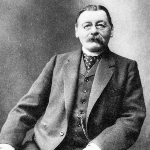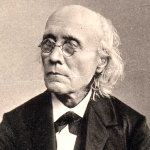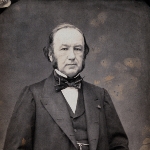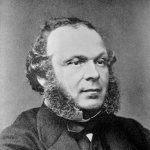Background
William Thierry Preyer was born on July 4, 1841, in Moss Side, near Manchester, England.

Heidelberg University, Heidelberg, Baden-Württemberg, Germany
Preyer began to study science at Heidelberg in 1859, concentrating on physiology and chemistry, and received the doctorate in 1862.
University of Bonn, Bonn, North Rhine-Westphalia, Germany
In 1866 Preyer earned his medical degree at the University of Bonn.
William Thierry Preyer, an English-born physiologist who worked in Germany.
William Thierry Preyer, an English-born physiologist.









educator physiologist scientist
William Thierry Preyer was born on July 4, 1841, in Moss Side, near Manchester, England.
Preyer was educated first in London and then in Duisburg, following his immigration to Germany in 1857. He began to study science at Heidelberg in 1859, concentrating on physiology and chemistry, and received the doctorate in 1862. Turning from natural science to medicine, Preyer studied in Paris with Claude Bernard and Charles-Adolphe Wurtz, and later in Berlin, Vienna, and Bonn. In 1866 he earned his medical degree at the University of Bonn.
In 1865 Preyer qualified at Bonn as a lecturer in zoophysics and zoochemistry in the Faculty of Philosophy. The following year he received his medical degree at Bonn. In 1867 he qualified as a teacher of physiology at the Faculty of Medicine of the University of Jena, where in 1869 he succeeded Johann Nepomuk Czermak as professor of physiology and was appointed a director of the Physiology Institute. Poor health obliged him to retire in 1888, and he spent the rest of his life as a private scholar in Wiesbaden.
Preyer’s initial scientific work dealt with physiological chemistry (hemoglobin, gases in the blood, curare) and sense physiology (myophysical law). His lactic acid theory of sleep (1876) became widely known. His most significant contributions, however, are in his writings on psychology, especially Die Seele des Kindes (1882). With this work, Preyer established himself as one of the founders of modern developmental psychology - an approach by which the descriptive natural sciences could exhibit the attributes of the determinate and empirically oriented disciplines. Its prime method was the chronological arrangement of observations made throughout the psychological life of the child.
His most important work titled, Die Seele des Kindes (The soul of the child), published in 1882, became a landmark book on developmental psychology. He was also the author of another landmark book on developmental physiology titled Specielle Physiologie des Embryo (Special physiology of the embryo). Both works laid a foundation for future study of modern human development.
(Part 2)
1890(Part 1)
1890Preyer frequently tackled more general scientific problems. In Naturwissenschaftliche Thatsachen and Probleme (1880), he discussed the possibility that inorganic matter had emerged from living systems. The sole difference between them, he asserted, was that the former can come into being in various ways, whereas all living creatures derive from organic bodies and therefore must undergo a process of development. This development, which cannot be interrupted, goes as far back as the period when the earth was in a fluid, incandescent state; and Preyer interpreted movements Within it as themselves signs of life. All inorganic compounds were at first absent from the earth, which in Preyer’s view was teeming with life. Only with increasing cooling did compounds condense, and these became steadily more like protoplasm, the material basis for the evolution of the organisms.
Preyer’s definition of protoplasm, in Elemente der allgemeinen Physiologie (1883), directly challenged the view of the older biologists, who considered protoplasm to be a homogeneous substance.
For Preyer, it was a “mixture of solids and liquids, of very complex chemical compounds that in the present stage of life are going through rapid and uninterrupted decomposition and reformation. In his genetic system of the elements (1893) Preyer took into account Mendeleev’s periodic system as well as the periodic laws formulated by Julius Lothar Meyer and the seven divisions first recognized by John A. R. Newlands.
Quotations:
"Exercises in being obedient can not begin too early, and I have, during an almost daily observation of six years, discovered no harm from an early, consistent guiding of the germinating will, provided only this guiding be done with the greatest mildness and justice, as if the infant had already an insight into the benefits of obedience."
"The elements of the living body have the chemical peculiarity of forming with each other most numerous combinations and very large molecules, consisting of five, six or even seven different elements."

While still a student, Preyer traveled to Iceland with the geologist Ferdinand Zirkel. The results of their journey were published in 1862.

Preyer was a colleague of Gustav Theodor Fechner (who was an advocate and patient of homeopathy).


